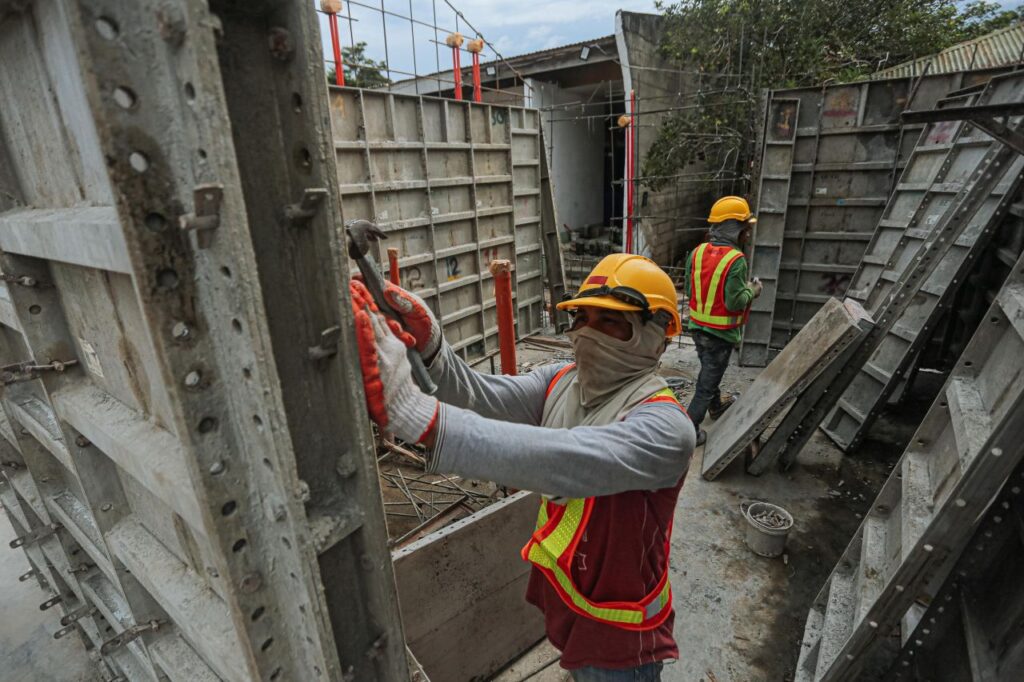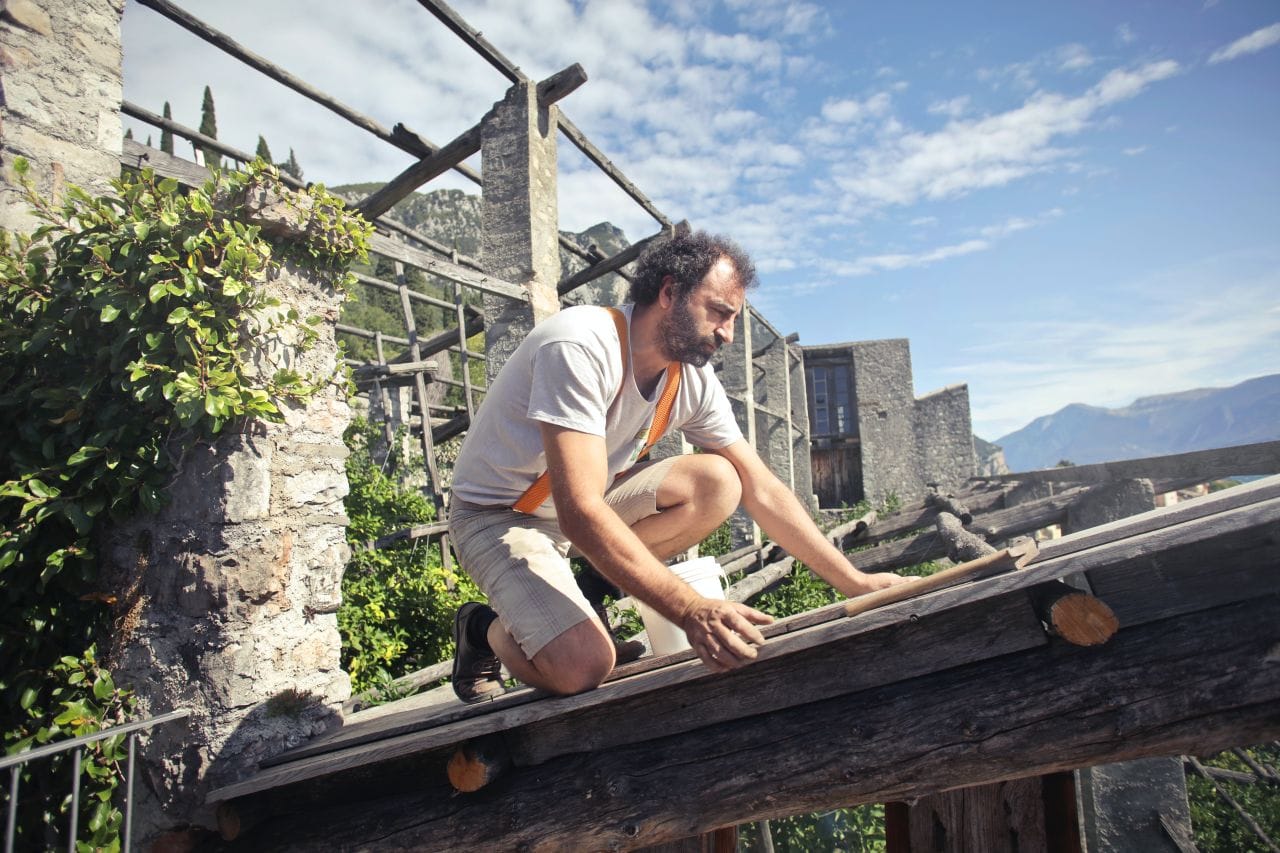For a home to be built and sold successfully, the builder must be well-versed in the home's intricate systems, meticulous in their execution, and able to effectively manage the efforts of many subcontractors. The construction team's ability to think on its feet, plan ahead, and do multiple duties at once is tested by this process. A home builder is first and foremost a manager who oversees a large crew of subcontractors including but not limited to architects, carpenters, painters, engineers, plumbers, electricians, and landscapers. The builder must have sufficient knowledge of each contractor's field to evaluate the work.
The builder, like the CEO, needs a team of people to get the task done, and he or she has final say over whether or not the work is satisfactory. Some construction companies also engage in land development. They are the land surveyor when they do this function. They have to examine a plot of land thoroughly to see if it is fit for development and in accordance with zoning laws, municipal planning laws, and environmental constraints.
A home builder will examine the terrain of a piece of land in search of rock outcroppings, shallow groundwater, natural drainage sources, shallow depth bedrock, and thick vegetation in order to gain an idea of what might be lurking beneath the surface. A builder's considerations in this area also include erosion control and landscaping. Once a builder finds a good location, the next step is to obtain the necessary permits. Builders act as intermediaries between residents and municipal authorities.
To determine what can be constructed in a given area, they investigate and examine the relevant local building codes. Most places have codes governing construction, plumbing, HVAC, electrical, and fire safety. The contractor studies the building codes and then obtains the necessary permits from the relevant authorities. Once the necessary permits have been obtained, the contractor may begin preparing the building site, staking out the precise spot for the new home, and donning the hard hat in preparation for construction. A builder then directs his attention to the following stages of a house's construction:
- Laying the foundation
- Erecting the framing, roofing, and siding
- Nailing in the floor
- Building the walls
- Installing in the exterior trim
The contractor also manages the tradespeople who set up the plumbing, heating, and electricity. That's why it's important to hire a builder that doubles as an inspector.
10 Steps In Building Your Dream Home
There is a certain type of house that everyone of us fantasises about owning. Everyone longs to come home to a place that is both aesthetically pleasing and functional. Ideally, we'd have a home that provides for all of our needs, whether it's sleep, entertainment, or food. Living in a place like that would be really satisfying. And yet, how do we acquire this ideal dwelling? How do we go about getting our hands on it?
If you want to build a house like the one in your dreams, we'll outline the ten specific steps you need to take today. Naturally, the first step towards realising our goals is to take action. If you couple that with effort, you can make your dreams a reality. So, to get you to your ideal home, I've laid out a plan for you to follow. It won't be simple, but it can be done. But if you don't do these things, you'll never have the house of your dreams.
Save Money.
Make sure you will start saving money before you ever consider buying a house. Putting money aside helps you plan for the costs associated with buying or constructing a home. You need to give yourself permission to day-dream about it and take action towards making it a reality. Your ideal home will remain a pipe dream if you do nothing except fantasise about it. Therefore, start with the first step and start saving.
Budget And Costs.
If you have put aside enough money, the next step is to make a budget to keep track of how much everything is going to cost. If you want an accurate cost estimate for your ideal home, it's best to acquire advice from experts like architects and civil engineers. If you haven't saved up enough money, there are alternative options to consider.
Consider Your Home Needs.
Be sure to examine your way of living. How do you spend your time, and what amenities does your house require, for you to feel at ease there? Would you like to use your leisure space, or do you need it? Or maybe you have a personal library? A swimming pool, perhaps? Compose a wish list and a list of necessities for your future abode. You might use this as inspiration for your ideal home.
Find A Good Designer.
The inside of your home requires the services of a professional designer. Find expert assistance for house planning. Tell him exactly what you want in a dream home, and he can make it happen. Investigate a designer's education and previous projects before hiring them.
Look For A Home Site.
If you don't have land, you can't build a house. As a result, you should start looking for an empty lot. First, though, you'll need to settle on a location, like a mountainous terrain, a spot near the water, or a spot with an otherwise impressive panorama of the outdoors.
Create A House Design.
Your designer would normally do this, but you should be involved nonetheless. The first thing to do is see if the aesthetic appeals to you. Do you think it would look nice in your house? If not, please propose some alterations. Do not make alterations without careful consideration, as once the design is complete, it cannot be changed, especially if your home is currently in the building phase.
Obtain The Blueprints.
Now that you have chosen a house plan, it is time to pull out the plans. This will be used as a guide for the construction team, and it will also be necessary to secure a permission from the city. Therefore, building cannot commence until a plan has been drawn up. The blueprint for a building project serves the same purpose as a course outline: it is designed to be followed by all builders.
Prepare Building Essentials.
The blueprint is an integral part of the construction process, but there are other documents and materials you may need to gather as well, depending on the rules in your area. However, this would inevitably involve obtaining building licences, zoning approval, and possibly even more specialised permissions. Verify that your agreement with the construction company is in good standing as well.
Build Your Home.
Once you've done everything listed above, you're ready to start construction on your own house. You've decided on a contractor who will serve as project manager and have likely already hired them. But do check in on the job every once in a while. The interior design of your home will come after the outside is finished. Hire a competent interior designer to handle the job. Moreover, remember to tend to the garden.
Move-In And Enjoy.
Your house will be ready for occupancy after many months of construction. Do not put off obtaining an occupancy licence for your new house. Now is the time to settle into your new home and begin enjoying the good life it affords. To finish off the look of your property, you can add some decorations.
Estimating The Average Cost Of Building A House In Australia
Cost of an Average Home in Everage It's helpful to have a ballpark figure for the cost of building a new house or investment property based on its square footage, but how do you turn that number into a real figure you can use?
If you want to borrow money from a bank, you can't just walk in and say, "You need to borrow $1190 per square metre"; the bank will need more information than that.
We've done the maths on a typical home build of 150-170m2 to give you an idea of what it'll cost you to put up a house of your own.
To give you an idea of ballpark pricing, consider the following for a three- or four-bedroom, one- or two-bathroom home of this size:
A Budget-style, Basic Home
Three-bedroom homes start at $160,000, and four-bedroom homes start at $190,000. Put an extra $18,000-$20,000 on top of the base price for a turnkey solution.
A Standard Home
Houses with 3 bedrooms start at around $180,000, and those with 4 bedrooms start around $200,000. Turnkey packages add an additional $20,000–22,000.
A Premium, Higher End Home
Houses with 3 bedrooms start at $200,000, and those with 4 bedrooms start at $220,000. Add another $22,000–25,000 for a full installation and turnkey service.
FAQs About Home Builder
A home's construction requires substantial time and financial commitment. The best part: your ideal home can include everything you want.
However, if you aren't well prepared, creating something from nothing might become terrifyingly messy. If you want everything to run as smoothly as possible with your construction project, it's imperative that you find the best builder for the job.
While a thorough examination of the home is essential, the process may take different amounts of time and follow a different routine depending on the inspector's findings.
So that there are no unpleasant surprises down the line, make sure you enquire about the inspection process on day one. Have a detailed plan from demolition through the final inspection.
If you're concerned about your home's energy use, it's a good idea to inquire about installing green technology while it's being built. Heating, ventilation, air conditioning (HVAC), doors, windows, and insulation are all major issues.
You have completed an architectural programme outlining your objectives and needs and have determined the timeframe and budget for your bespoke construction. Getting a good team together matters most when building a bespoke house. Use the skills of reliable individuals.
A custom house builder's licence may be mandatory in some jurisdictions, while others are not. However, enquiring about a custom home builder's insurance and licences is wise.
Why Choose Professional Home Builders To Build Your Dream Home?
Seeing a stunning home inspires many of us to start planning our own construction projects. But in the process of building a house, we all look for ways to leave our mark and show off our personal preferences. Those of you who are on the same wavelength as us may have already begun your search for a custom home builder due to the subtle but important differences between regular contractors and custom builders. With the help of custom builders, we may get exactly what we want for every room in the house. To assist you decide whether or not to engage professional home builders, we'll discuss some of the benefits of doing so.
Custom Design
The finest part is that they customise every aspect of your home to your specifications. That is as low as they will go, and they won't underplay it or make it too dramatic. In addition, bespoke builders are the best option if you're not wanting to construct a whole new home, but rather to add on to your current one, renovate it, or make it greener and more energy efficient. Add a finishing touch to your home's floor plan layout by giving the exterior a great look.
Save Time
The passage of time is also quite significant. You may already know from personal experience or from what you've heard from others in the construction industry. When regular construction crews are responsible for it, the process takes far longer than anticipated. However, bespoke builders have been shown to be useful in the past. To guarantee the highest quality service in a timely manner, they assign only the most qualified experts to handle the job. If you attempt to complete that task on your own, you will find it to be challenging.
Good Market Knowledge
A custom home builder's name is likely to be recognised as they will likely be involved in multiple projects annually. This mutual friend facilitates smooth interactions with both suppliers and retailers. Because of this, companies are able to purchase resources and items in bulk at a reduced cost, something that is impossible for an individual to do. Customers benefit because they are able to avoid costly mistakes and dangerous situations.
Expertise
In the building industry, knowledge and competence go hand in hand. The professionals that construct custom homes are the most qualified in the industry since they have the training and knowledge to understand every step of the process. This means that your home will be cared after by professionals who are well-versed in all aspects of their field.
Save Money
Keeping an eye on your financial situation is essential. It is a common misconception that bespoke home construction is more expensive. The builders, on the other hand, have in-depth expertise in the field and may offer advice on the most cost-efficient design and material choices. They will help you plan your finances by giving you a rough estimate of your costs up front, and then by allowing you to monitor your spending to ensure you stay within your budget.
Building a home from the ground up is a massive undertaking. The best course of action is to retain the services of the top local custom home builders. There will be no more stress or danger during construction. In addition, when dealing with these experts, mistakes are uncommon. Hiring skilled, specialised home builders has several advantages, including those listed above. So, don't wait any longer if owning a home is something you're interested in. The experience of working with custom house builders will be one you'll never forget.



